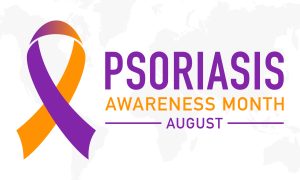 This month, we’re shedding light on a health condition you may be at risk of developing if you’ve been diagnosed with type 1 or 2 diabetes. Gastroparesis (also referred to as “delayed gastric emptying”) is a disorder that disrupts the movement of food from your stomach to your small intestine.
This month, we’re shedding light on a health condition you may be at risk of developing if you’ve been diagnosed with type 1 or 2 diabetes. Gastroparesis (also referred to as “delayed gastric emptying”) is a disorder that disrupts the movement of food from your stomach to your small intestine.
Out of 100,000 people, about 10 men and 40 women may suffer from gastroparesis, adding up to about 5 million people throughout the United States. Although gastroparesis is rare, you may be more likely to develop it based on certain factors.
Diabetes, certain cancer treatments, and any surgery that may have injured your vagus nerve may contribute to an increased risk of developing this disorder. Out of these factors, diabetes is the most commonly-identified cause.
A few different symptoms may indicate signs of gastroparesis, including a feeling of fullness in your stomach before or after finishing a normal-sized meal, stomach pain or discomfort, or nausea.
The first doctor you may see when you start to present symptoms of gastroparesis is your primary care physician. This doctor may then refer you to a gastroenterologist if they believe those symptoms may indicate gastroparesis.
When diagnosing you with gastroparesis, a doctor conducts a physical exam, measures stomach emptying, and takes your medical history into consideration. These factors, in addition to your symptoms, complications, and most likely cause help determine the best course of treatment for you. If diabetes is determined to be the cause of your gastroparesis, your doctor will focus on helping you control your blood glucose levels.
You can also tackle your symptoms from a dietary angle by reducing fat and fiber intake, avoiding tough-to-chew foods as well as carbonated and alcoholic beverages, and increasing your intake of water and liquids containing glucose and electrolytes. Light physical activity after each meal can also be helpful for stimulating your digestive processes, relieving feelings of fullness and allowing you to process food more easily.
All content of this newsletter is intended for general information purposes only and is not intended or implied to be a substitute for professional medical advice, diagnosis or treatment. Please consult a medical professional before adopting any of the suggestions on this page. You must never disregard professional medical advice or delay seeking medical treatment based upon any content of this newsletter. PROMPTLY CONSULT YOUR PHYSICIAN OR CALL 911 IF YOU BELIEVE YOU HAVE A MEDICAL EMERGENCY.



